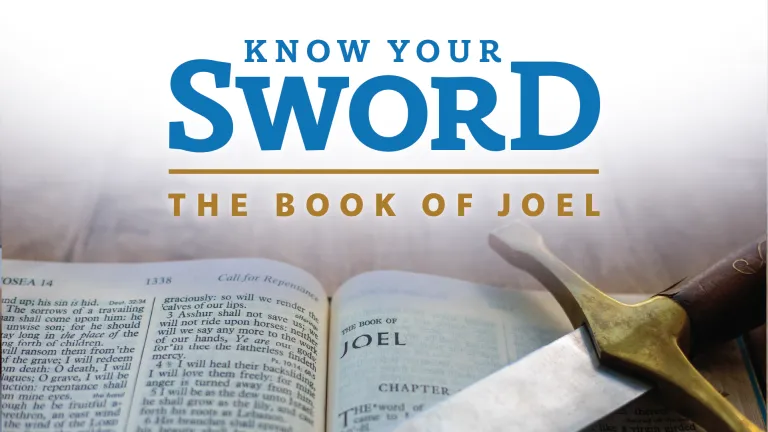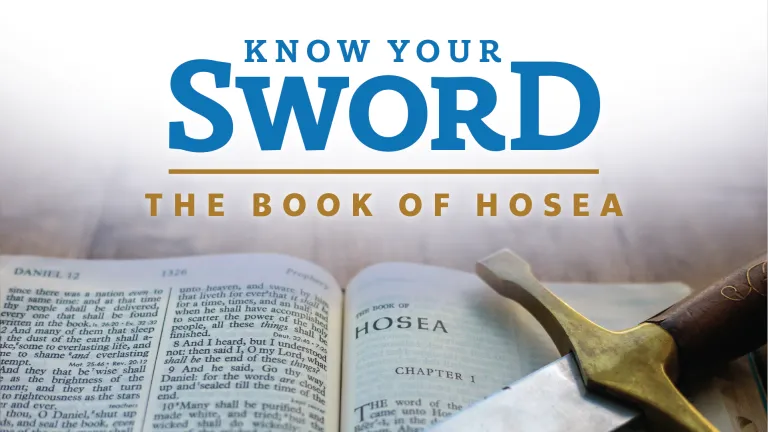Joel Part 01

Joel is considered by many to be the most polished literary work among the prophetic writings. The theme is the Day of the Lord, and Joel's writing includes careful and well-developed imagery of some of the most shocking prophecies in the Bible.
The next Minor Prophetic book that we will dive into is the Book of Joel. Today we will look at the author, when, where and why the book was written, and the main theme of the book.
Author
In Hebrew the name “Joel” means “YHWH is God.” There are several people in the Bible named Joel but almost nothing is known about this prophet Joel, other than he is the son of Pethuel. Apparently, further information about his identity is not important.
When
Opinions vary widely on when the book of Joel was prophesied. Many scholars say he was one of the earliest of the literary prophets while others say he may have written as late as after Assyria conquered Israel. Some Jewish traditions say he prophesied during the reign of King Manasseh. We can note that the enemies mentioned in the book are: Philistia, Phoenicia, Edom and Egypt. Notice that there’s no mention of Syria, Assyria or Babylon, which would suggest a date earlier than the captivities by these nations.
Additionally, Joel mentions the priesthood and temple ritual as still active and does not describe idolatry. He also does not mention any reigning king. This leads some people to think that Joel prophesied during the early part of King Joash’s reign. Joash began to reign at age 7, and was guided by the high priest, Jehoiada (2 Chronicles 24:1-4, 2 Kings 11:4-12, 21). All of that would place the Book of Joel at about 835 to 795 BC. We can also conclude that the date is not important, or it would be noted, or there would be a reference point in the book to a specific king.
Where
Most scholars agree that Joel lived and worked in Judah—and probably prophesied in Jerusalem. If he had been in the North, he would have been condemning idolatry. Instead, the book refers to Jerusalem, the Temple and the Priesthood.
Why
The simple but important theme of Joel is, “The Day of the LORD.” It foretells imminent physical disaster (seemingly in the form of a locust plague) and of the coming end-time cataclysm to be followed by deliverance and the outpouring of God’s Holy Spirit. Since Joel’s vision of the great day of the Lord include a universal outpouring of the Spirit of the Lord, he has often been called “the prophet of Pentecost.” Peter refers to Joel on the Day of Pentecost in Acts 2 as the coming of the Holy Spirit is a fulfillment of Joel 2:28-29.
What
Joel serves as a warning to those in Judah who were enjoying comfort and NOT diligent in doing God’s work. It also warns God’s called-out people today to focus on God’s priorities, rather than on our own. Language scholars call Joel’s writing, “very pure” and “smooth.” It’s described as using fluid rhythms, round sentences and regular parallelisms (it’s written as poetry). Powerful symbolism is used to present graphic and dynamic imagery. The warnings contained in the book are principally to Judah and to end-time Christians! This makes the book relevant to us as we read it in our time.
Minor Prophets class is taught at ABC by Dr. Frank Dunkle. You can access the audio of the 2008-09 class taught by Gary Antion by following this link: ucg.org/course/ambassador-bible-college/minor-prophets
The 2025-26 classes taught by Dr. Dunkle will be recorded and available as they are edited and posted throughout the academic year.
UYA Team | uya@ucg.org
United Young Adults (UYA) primarily serves the 18–32-year age group for the United Church of God. There are three main areas of contribution to the lives of the young adults: Promoting Spiritual Growth, Developing Meaningful Relationships and Making the Most of Your Talents. The Know Your Sword series is a daily expository message introducing God’s Word from a trusted perspective.


